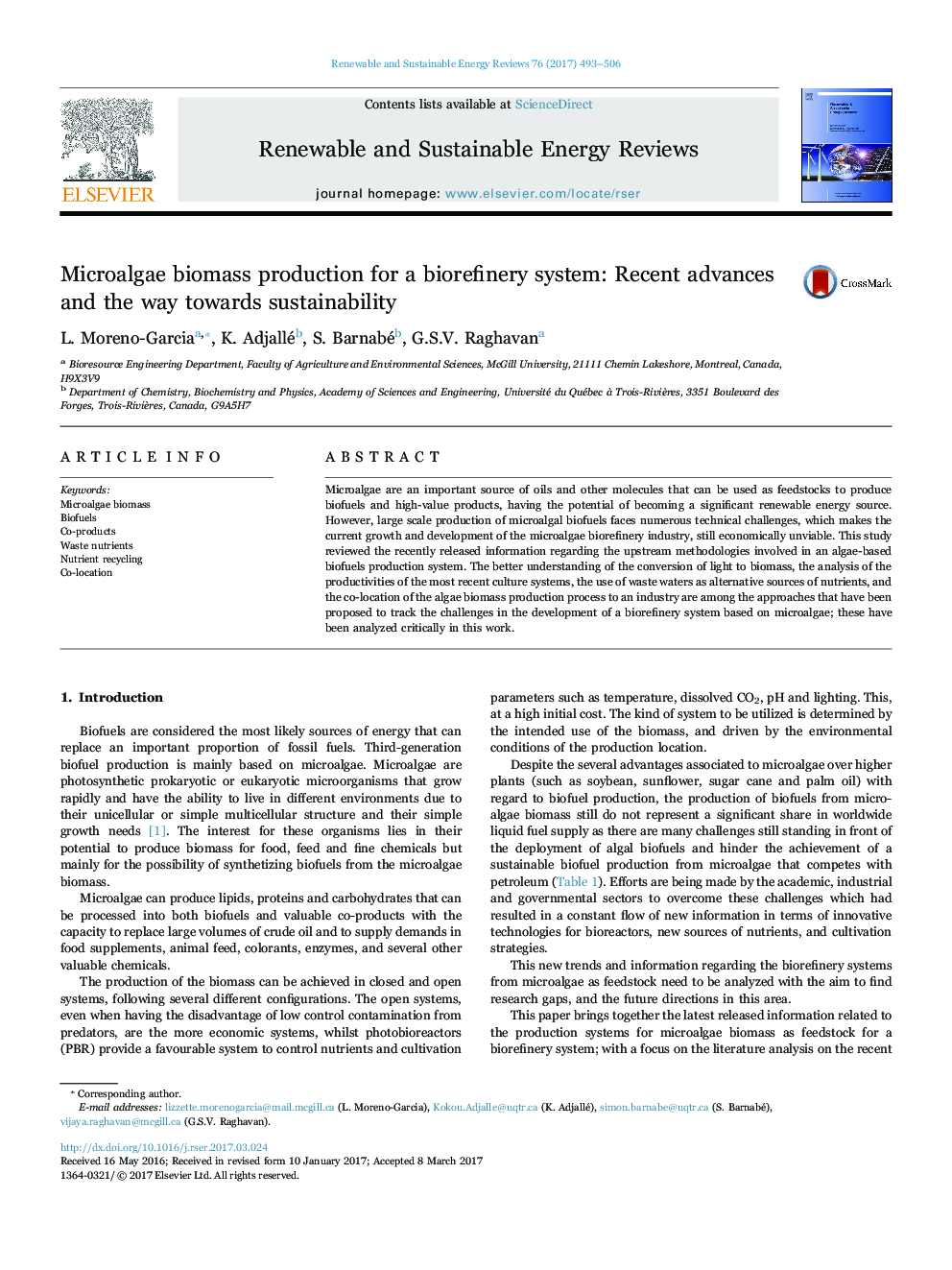| Article ID | Journal | Published Year | Pages | File Type |
|---|---|---|---|---|
| 5482173 | Renewable and Sustainable Energy Reviews | 2017 | 14 Pages |
Abstract
Microalgae are an important source of oils and other molecules that can be used as feedstocks to produce biofuels and high-value products, having the potential of becoming a significant renewable energy source. However, large scale production of microalgal biofuels faces numerous technical challenges, which makes the current growth and development of the microalgae biorefinery industry, still economically unviable. This study reviewed the recently released information regarding the upstream methodologies involved in an algae-based biofuels production system. The better understanding of the conversion of light to biomass, the analysis of the productivities of the most recent culture systems, the use of waste waters as alternative sources of nutrients, and the co-location of the algae biomass production process to an industry are among the approaches that have been proposed to track the challenges in the development of a biorefinery system based on microalgae; these have been analyzed critically in this work.
Related Topics
Physical Sciences and Engineering
Energy
Renewable Energy, Sustainability and the Environment
Authors
L. Moreno-Garcia, K. Adjallé, S. Barnabé, G.S.V. Raghavan,
